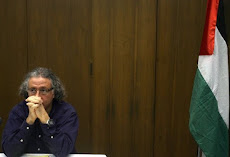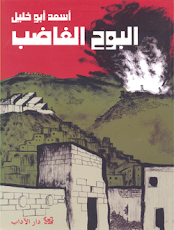Sectarianism is a powerful instrument to make sure that you can
use the army's full military might against the population. No military that is
reasonably representative of the population could do what the Syrian army did
over the last two years, i.e. destroying most of the country's major cities,
including large parts of the capital. You need a sectarian or ethnic divide that
separates the core of the military from the target population. Algeria went
through a nasty civil war in the 1990s, and Algerian generals are ruthless
people, but I do not think that the Algerian military ever used heavy artillery
against one of the country's large cities. The fact that the best units in the
Syrian military are largely manned with Alawite soldiers (in addition to members
of some loyal Bedouin clans) has been key to explaining the level of violence we
have seen over the last two years. Of course, the majority of Syrian soldiers
are Sunnis, but it is striking that Asad did only use a minority of the army's
available units: according to some observers, only one third of the army was
entrusted with combat missions since the start uprising. Seen from that angle,
the purported "cohesion" of the Syrian army becomes much less puzzling: the risk
of defections significantly decreases when two-third of the soldiers are in fact
locked up in their barracks, or at least kept away from the
battlefield.
Once the military hierachy
is loyal, and once you can use a significant proportion of the army to unleash
unlimited violence upon the population, the rest follows. The regime keeps
control of major population centers thanks to its much superior firepower and
ability to use it, thus it keeps the families of many of its soldiers as de
facto hostages. For instance, a friend of mine just defected from the army
after his family (which had moved from one of Damascus' suburbs to downtown in
order to escape the regime's air raids) eventually managed to leave for
Egypt.
The
regime's military force also keeps much of the businessmen and middle-class
loyal because although they often hate the regime, they know that changing it
means civil war, and they do not have enough to loose to take that risk. And
actually, even when businessmen cease to actively support the regime (an
enormous proportion of them have moved with their assets to Turkey and Egypt
over the last year), the regime is still standing, because it still controls the
military. Then you have the diplomats who also remain loyal, often because they
know that the regime is firmly in control of Damascus, which means that it can
kill their relatives and burn their house if they defect. On the contrary,
massive defections of Libyan diplomats occurred in 2011 because they had
calculated that the regime would fall quickly, not because they had
become liberal democrats overnight. It is all about calculation, not about some
belief in the legitimacy of the regime.
Support
from religious minorities has also been frequently mentioned as a cause for the
resilience of the regime. But except for the very peculiar case of the Alawites,
minorities do in fact weigh very little in the balance: even
if all Christians were supporting Asad (which of course is not the case,
neither for Christians nor for any other sect), we would still be speaking of a
mere 5% of the population with very little influence over the state and the
military. Other religious minorities are much, much smaller, they do not make a
difference.
In
fact, many of the factors that have been frequently invoked to account for the
resilience of the Syrian regime where also present in Mubarak's Egypt: crony
businessmen and a wealthy middle-class that has benefitted from
economic liberalization (in fact much more so in Egypt than in Syria); a
non-Muslim population that is anxious at the possible rise of the Islamists
after the revolution; a sizeable bureaucracy and a hegemonic party with
considerable patronage capacities (in 2011 Mubarak's NDP was probably stronger
than the long-neglected Ba'th party). Yet, none of these factors had any
positive impact upon the resilience of Mubarak, which means that the cause for
Asad's resilience should be looked for elsewhere: it is the kin-based/sectarian
character of the military.
Then
you have external, i.e. Iranian and Russian, support. It has been important, but
it only came because the Syrian regime first demonstrated that it was solid
enough to be worth spending a few billion dollars on financial and military
aid.
There
is one last factor that has been commonly evoked among the left in the Arab
world and the west, i.e. Asad's purported "nationalist legitimacy". My aim here
is not to assess Asad's nationalist credentials, a debate which I find only
moderately interesting. My point is that none in Syria decided to side with or
against the regime on the basis of its foreign policy, or on the basis of some
"nationalist" sentiment. Making a decision based upon foreign policy issues is a
luxury none can afford when a revolutionary process puts your own individual
fate at stake: what people have in mind in such circumstances are issues like
freedom, dignity, equality, fear, sectarianism, and interest, not "resistance"
or "sympathy/antipathy for the west". People chose their side, then they
rationalised it ex post by making Asad a beacon of nationalism, or on the
contrary, a traitor. Otherwise, it would be hard to explain why formerly
pro-Western bourgeois suddently discovered that they were staunch
anti-imperialists, whereas hardline Islamists who had volunteered to fight US
troops in Iraq a few years before claimed that they would not mind if NATO was
providing them with air support.
3) Regarding your study of Syrian `Ulama’, is
it fair to say that the `ulama’ who joined the revolt tend to be more
reactionary and more conservative than those like Buti and Hassun who stuck with
the regime? (I am not merely talking about reformism in terms of rituals
following Qaradawi but in terms of views of women and minorities and role of
religion in society and body politic?
First of all, I cannot think of a more
reactionary stance than supporting Asad's fascistic and homicidal regime. This
is what really matters if we speak of "conservatism" and
"reformism".
For the rest, no, it is not fair to say
such a thing. There is no general pattern here. First of all, al-Buti and Hassun
are hardly comparable figures. Supporting the regime is probably the only thing
they ever agreed upon. Hassun holds fairly non-conformist views, he has spoken
positively of secularism and inter-faith dialogue. An arch-conservative, al-Buti
despised all of this. His alliance with the regime was not based on any kind of
sympathy for the regime's ideology, which he execrated, but instead on
pragmatism and on a medieval, quietist approach to Sunni political theology.
Al-Buti simply never expressed a single reformist opinion during his
life. By comparison with him, Mouaz al-Khatib is a very liberal and
open-minded figure. On women, for instance, there is a very telling anecdote
that happened in 2007: al-Buti lobbied for months in order to obtain that two
feminist associations be banned by the authorities, which eventually happened;
the only religious figure who openly criticised that initiative was Mouaz
al-Khatib, who argued that "Islamists should never think in terms of
repression". On minorities, regardless of the text on Sunni-Shiite relations he
published in early 2007 (which in my view was misinterpreted and not properly
contextualised), al-Khatib has made very clear public statements about
inter-faith unity. I think in particular of his April 2011 speech at a funeral
in Duma, in which he said the following:
All
of us are one same body. I say to you: the Alawites are much closer to me than
many people. I know their villages, their impoverished villages where they live
under oppression and toil. We speak for the freedom of every human being in this
country, for every Sunni, every Alawite, every Ismailite, every Christian, every
Arab and every member of the great Kurdish nation.
All his
further statements on minorities and in particular on the Alawites have been
absolutely unambiguous.
Much of
that could also be said of Imad al-Din al-Rashid, the former vice-dean of the
faculty of sharia, who was one of the first Muslim scholars to go into exile in
2011. For years, al-Rashid has talked and written much about the compatibility
between Islam and the concept of citizenship.
You can
add Muhammad Habash, a former ally of the regime, whose very liberal positions
on interfaith relations where branded as "heretic" by al-Buti.
Of
course, most of the oppositional ulama are more conservative. They share many of
the ideas of al-Buti, except (and it is not a detail) that they have refused to
legitimise Asad's regime.
4) what kind of islam is likel to prevail
following the fall of the regime?










